Politics
Taiwan’s political divisions weaken defence stance as Trump returns
Published
2 months agoon
By
Ekwutos Blog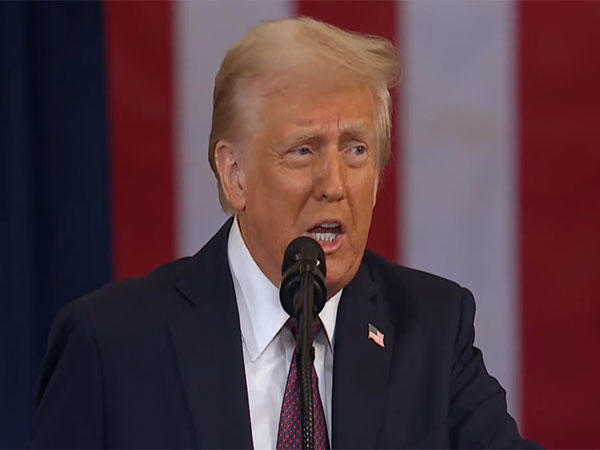
Taipei [Taiwan], January 25 (ANI): Taiwan‘s parliament has voted to freeze billions in defence spending just hours after Donald Trump‘s inauguration, raising concerns about the island’s preparedness against China‘s mounting threats, CNN reported.
The move, backed by the opposition, comes at a time when Taiwan is navigating strained relations with the United States under Trump‘s transactional approach to foreign policy. Critics warn that this decision could jeopardise Taiwan‘s military reformsand send negative signals to Washington.
Taiwan, a major semiconductor producer and democratically governed territory, faces constant threats from China, which claims the island as part of its territory. Despite never having governed Taiwan, Beijing continues to vow reunification, by force if necessary. The United States has been Taiwan‘s main arms supplier and strategic partner, but Trump‘s “America First” policy has heightened fears about whether Washington will continue its support without greater financial contributions from Taipei.
The opposition-led vote to block funding comes as Taiwan‘s President Lai Ching-te struggles with a parliament dominated by opposition forces. Critics argue that this budget freeze could weaken Taiwan‘s Defence capabilities and damage its credibility with the US “If there is not enough budget to consistently improve Taiwan‘s defence reforms and capabilities, the international community will doubt Taiwan‘s determination to defend ourselves,” Lai said in a Facebook post. The frozen funds impact key projects, including the development of indigenous submarines and drones.
Taiwan‘s Premier Cho Jung-tai strongly condemned the opposition’s actions, calling them “suicidal” and warning that they send “the wrong signal to the United States.” Defence Minister Wellington Koo echoed these concerns, emphasising that the freeze could undermine Taiwan‘s military modernisation efforts. Trump, known for his criticism of Taiwan‘s defence spending, previously called for the island to increase its defence allocation to 10 per cent of GDP – a fourfold increase from its current levels.
Taiwan‘s defence spending has faced scrutiny even before Trump‘s return. A backlog of more than USD 20 billion in undelivered US military equipment has hampered Taiwan‘s modernisation efforts. Concerns have also been raised about Taiwan‘s reliance on asymmetric warfare strategies, which prioritise smaller, more mobile systems like drones and portable missiles over conventional military equipment.
Defence experts argue that while progress has been made, much more needs to be done to counter the growing threat from China, which has the world’s largest standing army and spends 11 times more on defence than Taiwan, CNN reported.
Public sentiment in Taiwan reflects growing anxiety over the political deadlock. Residents have expressed concern about how the opposition-led freeze might be perceived by the US “I hope that Taiwan‘s legislature doesn’t embarrass itself and lose face to foreign countries,” said Wang Cheng-yi, a postgraduate student at National TaiwanUniversity. Ms. Hsu, a 75-year-old Taipei resident, emphasised the importance of unity, saying, “Everybody should sit down and talk. Taiwan must balance relations with both the US and China. We are small. We cannot afford to make either big brother unhappy.”
China‘s growing military aggression and diplomatic isolation of Taiwan have added urgency to the island’s defence preparations. Last year, US intelligence suggested that Chinese President Xi Jinping had instructed his military to prepare for an invasion of Taiwan by 2027. While this does not guarantee an invasion, it underscores the escalating threat. The United States has historically maintained a policy of “strategic ambiguity” under the Taiwan Relations Act, which commits Washington to providing Taiwan with the means to defend itself without explicitly promising military intervention.
Taiwan‘s military reforms have faced criticism for their slow pace. Issues such as inadequate reservist training and delays in deploying advanced weaponry have drawn scrutiny. The ongoing debate over Taiwan‘s indigenous submarine program further highlights the challenges. Alexander Huang, head of international affairs for the opposition Kuomintang party, defended the budget freeze, stating, “We are not opposing indigenous weapon system development. However, we emphasise that we need to be very prudent to make sure our self-designed submarine can actually work.”
The political discord also extends to Taiwan‘s infrastructure. Earlier this week, undersea cables connecting Taiwan to the Matsu islands were severed due to “natural deterioration,” disrupting internet services in the area. The digital affairs ministry has warned that further budget cuts could hinder the maintenance of critical infrastructure, leaving Taiwan vulnerable to potential exploitation by Beijing.
Despite these challenges, some Taiwanese remain optimistic. Yeh Hsin-wei, a student in Taipei, pointed to Taiwan‘s semiconductor industry as a key deterrent against Beijing. “The world needs our chips, so I think China wouldn’t risk a war,” he said to CNN. “We need to be prepared, but maybe not worry too much.”
Analysts have urged Taiwan‘s government to focus on presenting a united front, especially in light of Trump‘s return to the White House. “With or without Trump‘s inauguration, with China‘s increasing aggression over Taiwan, it is indeed Taiwan‘s top priority to continue to increase its self-defence budget,” said Wei-Ting Yen, an assistant research fellow at Academia Sinica. “That’s definitely not a good signal.” (ANI)
Provided by SyndiGate Media Inc. (Syndigate.info
).
You may like
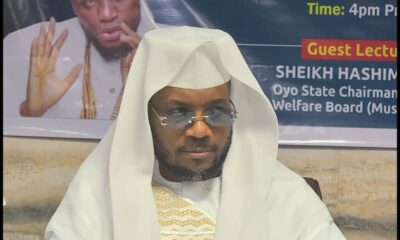

‘There is hunger in the land, we need to rescue Nigeria from APC’ – Ex- Reps member, Shina Peller
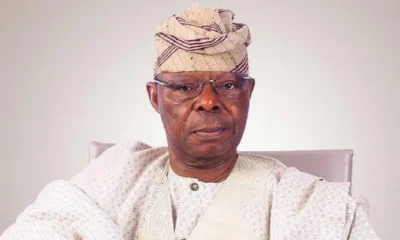

Alleged N30bn fraud: Court orders Nigerian billionaire, Oba Otudeko to appear for trial
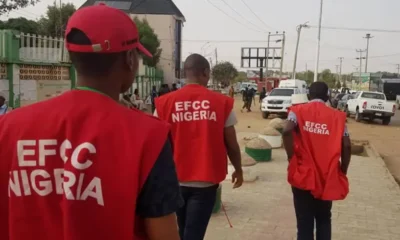

EFCC impounds trucks of illegal solid minerals in Benue
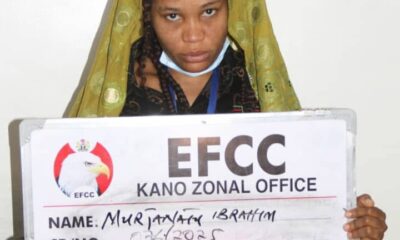

EFCC Arrests Kano TikTok Influencer, Murja Kunya for Alleged Naira Mutilation
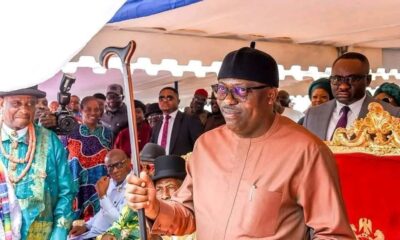

Impeachment: Rivers State House of Assembly Serves Gross Misconduct Allegation Notice On Fubara, Deputy Gov
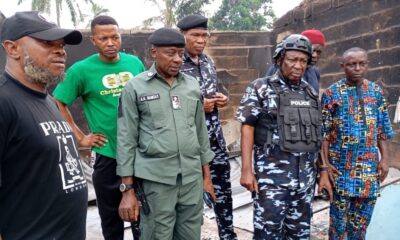

Youth election claims life in Imo
Politics
Impeachment: Rivers State House of Assembly Serves Gross Misconduct Allegation Notice On Fubara, Deputy Gov
Published
23 hours agoon
March 17, 2025By
Ekwutos Blog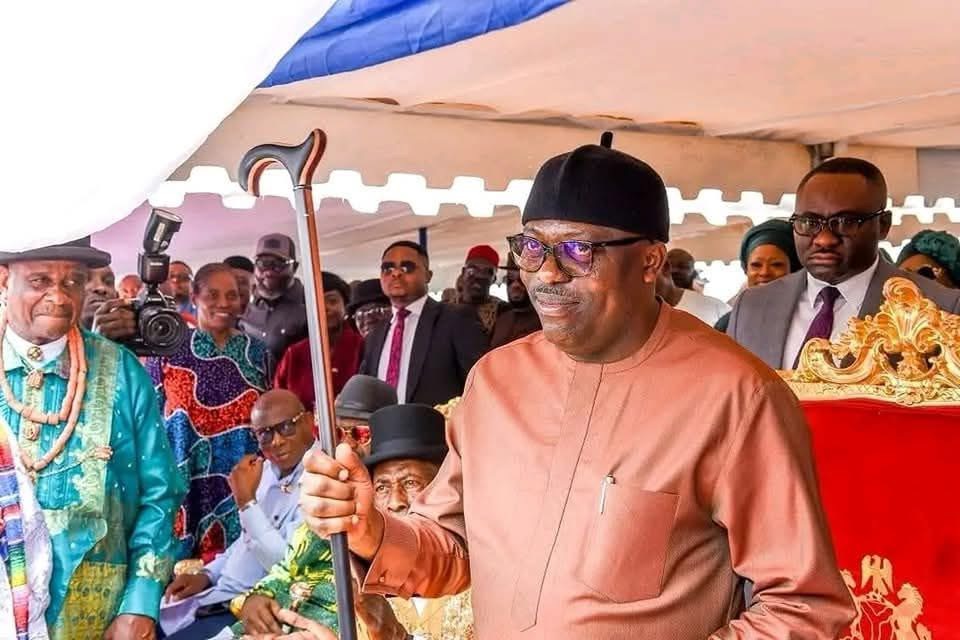
The Rivers State House of Assembly has served a notice of alleged misconduct against Governor Siminalayi Fubara and his deputy Ngozi Odu.
According to the notice, the lawmakers claimed the action was in line with the Nigerian Constitution.
“In compliance with Section 188 of the Constitution of the Federal Republic of Nigeria, 1999 (as amended) and other extant laws, we the undersigned members of the Rivers State House of Assembly hereby forward to you a Notice of Gross Misconduct by the Deputy Governor of Rivers State in the performance of the functions of her office,” the notice read…
Credit: Blaze 91.5 FM
Politics
Ukraine: US and Russia’s top diplomats discuss ‘next steps’
Published
1 day agoon
March 17, 2025By
Ekwutos Blog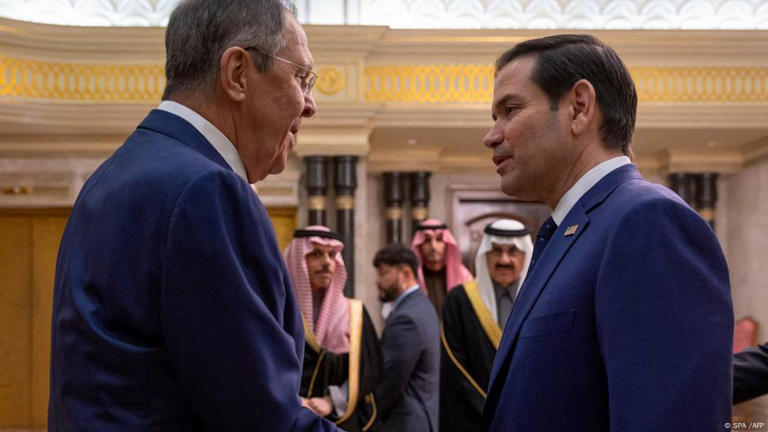
Indicating a thaw in US-Russia relations, Marco Rubio and Sergey Lavrov spoke about further efforts to ending the war in Ukraine as overnight aerial strikes continue.
US-Russia top diplomats Rubio and Lavrov, discuss ‘next steps’ on Ukraine Trump limits Kellogg’s role as special envoy to Ukraine Military meeting set for next week to support Ukraine in the event of a ceasefire with Russia Both Ukraine and Russia report overnight aerial strikes
Here’s the latest regarding Russia’s war in Ukraine on Sunday, March 16.
Russia reiterates demand that Ukraine not join NATO
Moscow will demand guarantees that NATO countries will exclude Ukraine from membership and that Ukraine will remain neutral in any peace agreement, a Russian official said in an interview with the Russian media outlet Izvestia.
“We will demand that ironclad security guarantees become part of this agreement,” Deputy Foreign Minister Alexander Grushko said.
“Part of these guarantees should be Ukraine’s neutral status, the refusal of NATO countries to accept it into the alliance,” he added.
Grushko also reiterated Russia’s opposition to the involvement of peacekeeping forces from NATO member states in Ukraine in any quality.
NATO states sending peacekeepers to Ukraine ‘means war,’ says Medvedev
Former Russian President Dmitry Medvedev has issued a scathing rebuke of a plan by European countries to deploy peacekeepers to Ukraine.
Britain and France have both said they could send peacekeepers to Ukraine as a security guarantee for Kyiv in the event of a ceasefire with Russia.
In a post on X, Medvedev accused French President Emmanuel Macron and British Prime Minister Keir Starmer of “playing dumb.”
“Time and again they are told that peacekeepers must be from non-NATO states,” he wrote.
Deploying peacekeepers from NATO member countries, for Russia, “means war with NATO,” he added.
Russia has repeatedly rejected the idea of soldiers from countries belonging to the NATO alliance being stationed in Ukraine, even if not formally sent as a part of a NATO mission.
Medvedev’s comments came after Macron told French regional newspapers that any peacekeeping force would consist of “a few thousand troops per country.”
He also said the question of whether to station troops in Ukraine was for Kyiv to decide, not Moscow.
Ukraine likely to give up territory under deal with Russia — Trump adviser
Michael Waltz, US President Donald Trump’s national security adviser, suggested that Ukraine would likely have to cede some territory to Russia while also giving up its wish to join the NATO military alliance.
Asked about speculation that a deal might require Ukraine to cede its eastern Donbas region and drop its NATO hopes, Waltz replied: “This is going to be some type of territory-for-future-security guarantees (deal) — the future status of Ukraine.”
“A permanent pathway into NATO, or permanent membership into NATO for Ukraine, is incredibly unlikely,” he said in comments made in an interview with the ABC News broadcaster.
What is Ukraine’s Donbas region?
Ukraine’s eastern Donbas is made up of the Donetsk and Luhansk regions, large swathes of which are controlled by Russian forces. Moscow claims to have annexed both regions in their entirety, alongside Zaporizhzhia and Kherson in the south, and has demanded that Kyiv recognize the annexation as part of any peace deal.
Moscow has long described Ukraine joining NATO as a red line, while Kyiv has ruled out making any territorial concessions.
The United States proposed a 30 cease-fire in the war between Russia and Ukraine after talks in Saudi Arabia earlier this week, with Kyiv accepting the proposal.
However, Russian President Vladimir Putin has not given a clear response to the US proposal, instead listing a number of conditions.
US officials have also strongly hinted that Ukraine will likely have to make some major concessions if a deal is to be reached.
As Europe rearms, will it turn away from Asia?
A few years ago, European Commission President Ursula von der Leyen declared that the EU wanted to “take a more active role in the Indo-Pacific.”
However, the future of this commitment is in doubt, as the United States under President Donald Trump has loudly mused about withdrawing security guarantees, potentially leaving European states to shoulder the burden of an uncertain ceasefire in Ukraine.
DW took a look at EU’s Indo-Pacific strategy: As Europe rearms, will it turn away from Asia?
Zelenskyy appoints new chief of staff
After a series of military setbacks, Ukrainian President Volodymyr Zelenskyy has appointed a new Chief of General Staff, General Andriy Hnatov. He was previously Deputy Chief of the General Staff.
The previous chief of staff, Anatoly Barhylevych, will become the new Inspector General of the Ministry of Defense.
No official reason was given for the need for the changes. However, Ukrainian forces have suffered significant setbacks in their fight against the Russian army in recent weeks, including a retreat in the western Russian region of Kursk.
How much will Trump White House back Ukraine?
US President Donald Trump is currently fighting on many (partly home-made) fronts at the same time: looming trade wars with China and Europe, tariff disputes with neighbors Canada and Mexico, the war in Gaza, plummeting stock markets.
Amid these crises, will the US let Ukraine fall? It seems only a matter of time before it is answered with a “yes.”
Read more here: How much will Trump White House back Ukraine?
Erdogan says he supports Trump’s peace initiatives on Ukraine
Turkish President Recep Tayyip Erdogan told his US counterpart Donald Trump that he stood behind Trump’s initiatives to bring peace to Ukraine, his office said.
According to a statement from the Turkish presidency, Erdogan told Trump in a phone call that he “supported determined and decisive efforts by American President Trump to put an end to the war between Russia and Ukraine.”
Erdogan said he backed “a just and durable peace since the start of the war and will continue to do so,” the statement said.
Since Russia launched its full-scale invasion of Ukraine three years ago, Turkey, a NATO member, has twice hosted direct talks aimed at ending the conflict, while seeking to retain good relations with both Kyiv and Moscow.
While Turkey has condemned Russia’s invasion and has provided Kyiv with military aid, it has not imposed sanctions on Russia.
Continued aerial attacks show Russia does not want to end the war, says Zelenskyy
Ukraine’s PresidentVolodymyr Zelenskyy has said the ongoing barrage of Russian airstrikes on Ukrainian cities shows that Moscow is not interested in ending the fighting in his country.
“Those who want the war to end as soon as possible do not act this way,” Zelenskyy wrote on the platform X, an allusion to recent comments by Russian President Vladimir Putin that seemed to suggest he supported the idea of a ceasefire.
Zelenskyy said that Russian forces had ” launched over 1,020 attack drones, nearly 1,360 guided aerial bombs, and more than 10 missiles of various types” over the past week.
He called on Ukraine’s international allies to continue providing air-defense systems and urged Europe and the US to exert unified pressure on Russia to end the war and work toward a just, lasting peace.
“Decisive measures are needed, including sanctions that must be not only maintained but also continuously strengthened,” he added.
Russia launched a full-scale invasion of neighboring Ukraine in February 2022 against which Kyiv’s forces have been fighting ever since with considerable assistance from the West.
Finnish President Stubb calls chances of Putin’s agreeing to ceasefire ‘abysmal’
Finnish President Alexander Stubb has said there is extremely little chance of Russian President Vladimir Putin agreeing to a ceasefire in Ukraine, calling the likelihood of his doing so “abysmal.”
“Putin doesn’t want peace,” Stubb said during an interview with British broadcaster BBC aired on Sunday.
He said Putin had not changed his long-held view that Ukraine should “cease to exist.”
According to Stubb, imposing more sanctions on Moscow, using frozen Russian assets to purchase military equipment for Kyiv and “militarizing Ukraine to the teeth” were the best ways to end the Russian invasion.
Finland shares a 1,340-kilometer (833-mile) border with Russia and became a NATO member almost two years ago in the face of Moscow’s aggression against Ukraine.
Turkey condemns Russian annexation of Crimea
Turkey again condemned Russia’s annexation of Crimea from Ukraine, saying it is a violation of international law.
“We reiterate that [Turkey] does not recognize the de facto situation in Crimea, which constitutes a violation of international law, and that we support the territorial integrity and sovereignty of Ukraine,” the Turkish Foreign Ministry said.
It released the statement to mark the anniversary of an internationally panned referendum held by Russia in Crimea on March 16, 2014.
Despite the lack of international recognition, the peninsula’s majority ethnic Russian population voted in favor of joining Russia, and Moscow took control of Crimea.
“We will continue to closely monitor developments in Crimea, particularly the situation of the Crimean Tatar Turks, the indigenous people of the peninsula, and we will keep them on the agenda of the international community.”
Crimean Tatars, a Muslim ethnic minority indigenous to Crimea, have been resisting Russian occupation, with some of them fighting in the Ukrainian armed forces.
Crimean Tatar belongs to the Turkic language family, making it a close relative of Turkish.
Steve Witkoff says he expects Trump-Putin talks this week
Donald Trump’s envoy Steve Witkoff has said he expects the US president to hold “really good and positive” talks this week with his Russian counterpart, Vladimir Putin, about ending the war in Ukraine.
“I expect that there will be a call with both presidents this week, and we’re also continuing to engage and have conversation with the Ukrainians,” he told US broadcaster CNN.
Witkoff himself held talks with Putin in Moscow on Thursday, describing them as “positive” and saying he was optimistic that there would be real progress on ending the conflict.
Witkoff said that although the situation was very complicated, “We’re bridging the gap between two sides.”
Russia evacuates hundreds of people from Kursk
Russia announced it has evacuated 371 civilians from areas it regained from Ukrainian forces in the Kursk region.
Kursk is part of western Russia that borders the Sumy region of Ukraine. The Russian military has regained control over several towns in Russia’s Kursk region, which Ukrainian forces had held after a surprise incursion into Russian territory last August.
However, fierce fighting between Russian and Ukrainian troops is ongoing.
Kursk region governor Alexander Khinshtein wrote on the Telegram messaging app, “371 people have been moved, including 14 children,” from the region since Wednesday.
He added 220 of the civilians had been placed in temporary accommodation, while the rest were staying with relatives.
Russia, Ukraine trade strikes; Injuries reported in Belgorod
Both Russia and Ukraine launched aerial strikes on one another from Saturday into Sunday.
Ukraine’s air defense units shot down 47 of 90 drones launched by Russia in an overnight attack, the air force said.
Damage was reported in four regions, but the air force didn’t provide details.
Separately, Russia’s defense ministry said its air defense destroyed 31 Ukrainian drones over Russian territory, including 16 in Voronezh, nine in Belgorod, and the rest in Rostov and Kursk regions.
In Belgorod, three people were injured in the attack, including a 7-year-old, according to regional Governor Vyacheslav Gladkov.
Trump narrows responsibilities of special envoy Kellogg to Ukraine
After reported complaints from Russia, US President Donald Trump has narrowed the role of Keith Kellogg, who will now serve solely as his special envoy on Ukraine.
Kellogg has previously been described as a special envoy for Ukraine and Russia.
“I am pleased to inform you that General Keith Kellogg has been appointed Special Envoy to Ukraine,” Trump wrote on his Truth Social platform.
A former national security adviser during Trump’s first term, Kellogg was excluded from recent talks in Saudi Arabia on ending the war.
He was also not involved in the talks with Russia that followed, with US Special Envoy Steve Witkoff visiting Moscow instead to discuss a possible ceasefire.
US broadcaster NBC, citing a senior Russian official, reported that the Kremlin had put pressure on Trump because President Vladimir Putin considered Kellogg pro-Ukraine.
Kremlin spokesman Dmitry Peskov dismissed the report, telling reporters on Friday Moscow has no intention of interfering.
Rubio and Lavrov discuss ‘next steps’ on Ukraine
US Secretary of State Marco Rubio and Russia’s Foreign Minister Sergey Lavrov spoke on Saturday about ending the war in Ukraine.
The US State Department said the top diplomats “discussed next steps” after the two countries’ meetings in Saudi Arabia and “agreed to continue working towards restoring communication between the United States and Russia.”
Despite recent tensions between US President Donald Trump and Ukrainian President Volodymyr Zelenskyy, Kyiv has agreed to a US-brokered 30-day ceasefire if Moscow halts its attacks, but Russian President Vladimir Putin has set conditions beyond the US-Ukraine agreement.
The State Department gave no details on when the next round of US-Russia talks would begin.
Rubio also updated Lavrov on military activity in the Middle East, where US forces carried out strikes against Houthi rebels Yemen.
Politics
Budget Presentation: Fresh Twist As Rivers Assembly Adjourns Indefinitely.
Published
1 day agoon
March 17, 2025By
Ekwutos Blog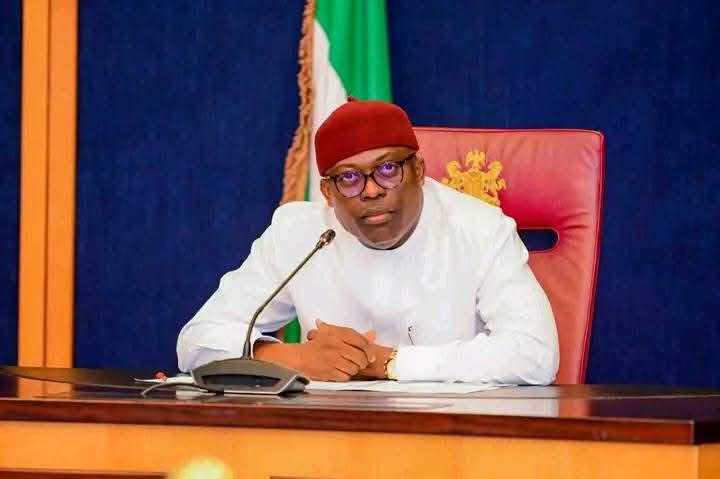
Hours after Governor Similanayi Fubara made another request to the Rivers State House of Assembly to present 2025 Appropriation Bill, the House on Friday adjourned plenary indefinitely.
The adjournment came a few hours after the governor said he had sent a second letter to the House for the presentation of the state’s 2025 budget.
The decision to adjourn indefinitely was reached at the Assembly’s plenary on Friday presided over by Speaker Martins Amaewhule.
Our reporter could not ascertain if the letter sent by the governor was received by the Speaker.
Governor Fubara had in the letter addressed to the speaker informed the House of his intention to present the budget on March 19, 2025.
In the letter he urged the House to also choose any convenient date other than March 19 for the presentation of the budget.
After he failed to meet a 48-hour ultimatum given by the lawmakers, Fubara had gone to the Assembly complex on Wednesday to present the budget, but the gate was locked.
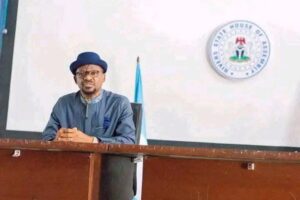
The adjournment of plenary has thrown a spanner in the works as the governor tries to reconcile with 27 lawmakers loyal to his estranged successor, former governor Nyesom Wike, following the Supreme Court ruling.

‘There is hunger in the land, we need to rescue Nigeria from APC’ – Ex- Reps member, Shina Peller

Alleged N30bn fraud: Court orders Nigerian billionaire, Oba Otudeko to appear for trial

EFCC impounds trucks of illegal solid minerals in Benue
Trending

 Trending5 months ago
Trending5 months agoNYA demands release of ‘abducted’ Imo chairman, preaches good governance
- Politics1 year ago
Nigerian Senate passes Bill seeking the establishment of the South East Development Commission.
- Business5 months ago
US court acquits Air Peace boss, slams Mayfield $4000 fine

 Politics5 months ago
Politics5 months agoMexico’s new president causes concern just weeks before the US elections
- Entertainment5 months ago
Bobrisky transferred from Immigration to FCID, spends night behind bars
- Entertainment5 months ago
Bobrisky falls ill in police custody, rushed to hospital

 Politics5 months ago
Politics5 months agoRussia bans imports of agro-products from Kazakhstan after refusal to join BRICS

 Politics5 months ago
Politics5 months agoPutin invites 20 world leaders

